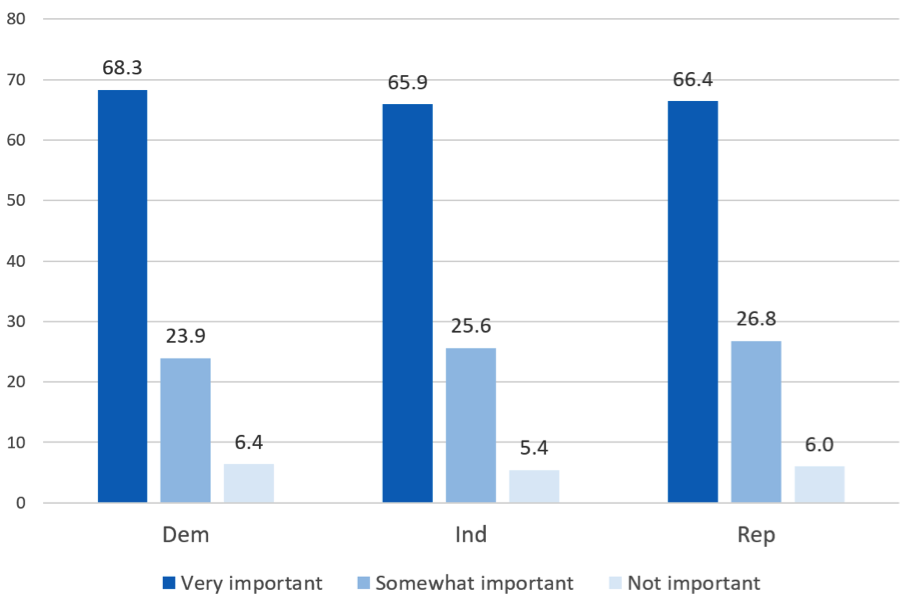In a recent survey, voters ranked “Removing the corrupting influence of special interest money in California politics” as more important than climate change, pension reform, immigration, or jobs and the economy. While jobs, the economy, climate change, and immigration were considered important by California voters, each of those issues paled in comparison to voter concern over the impact of special interest money.
And surprisingly, even with the public so sharply divided on so many issues, more than 90% of Democrats, Independents and Republicans ranked the corrupting influence of special interest money to be the most important issue facing California. In other words, the public distrust of the status quo was both statistically deeper and ideologically broader than what the Trump and Sanders campaigns represented. And that is worthy of taking note.
 *Source: SmithJohnson Research survey of 2018 likely voters February 6-7, 2017
*Source: SmithJohnson Research survey of 2018 likely voters February 6-7, 2017
For the past five years, a team of citizens has been working to find a solution to the corrupting influence of this special interest money. Conversations have crossed party lines, and focused on whether or not part of the problem was systemic, hurting people of all political persuasions. Legislators spending countless hours begging for campaign cash was a problem, particularly since only the special interests with business before the legislature could afford to write those millions in checks. You couldn’t have designed a system more fraught with temptation or ripe for reform.
In the end, the solution was remarkably simple, and has been filed as an initiative for the November 2018 ballot. It’s called the “Neighborhood Legislature”, and it basically divides each of our 120 districts onto 100 neighborhoods, each with its own neighborhood representative. Since an Assembly neighborhood district would have only about 5,000 people in it, the cost of a campaign goes from a few million to a few hundred dollars.
Population has grown so rapidly in California that we cram nearly half a million voters into an Assembly district. Compare that to New Hampshire, which essentially has a “neighborhood” legislature, districts have only about 3,400 people, election campaigns are low spending affairs and they routinely pass an on-time, balanced budget.
The 100 neighborhood legislators meet locally to choose one of their number to go to Sacramento to represent their district as part of what is termed the “Working Committee”. The Assembly and Senate “Working Committees” will operate similarly to how the Senate and Assembly do today, except none of the working committee members will need to hold endless fundraisers, and their pay will be capped at 120% of the median household income for California families.
The “neighborhood legislators” back home would receive $1 a year to serve, making it truly a public service. Neighborhood representatives would also stay connected electronically in an entirely transparent legislative process, and would cast a final up or down vote on legislation passed by the Working Committees.
The net result is a cost savings to taxpayers of tens of millions a year, and an end to the corrupting influence of special interest money.
John Cox is a San Diego area businessman and author of the Neighborhood Legislature initiative.
*SmithJohnson Research conducted a poll of 500 California 2018 likely voters on February 6-7, 2017. The sampling error of +/-4.4%.

